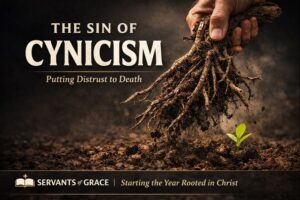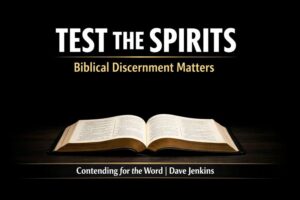⏱️ Estimated Reading Time: 5 min read
Introduction
Psalm 4 expresses quiet trust amid troubling circumstances, combining the categories of individual lament and confidence >Many take this as a companion to Psalm 3, because 4:8 seems to echo 3:5. If there is a connection, the past tense of 3:5 sets it in the morning, while the future tense of 4:8 sets it in the evening; any further connection is speculative.
Explanation of Psalm 4
You have given me relief in verse 1 between two urgent request is similar to the rhetoric of 3:7: past experience emboldens the faithful to confident prayer. The singer turns form his prayer to address in 4:2-3 those who slander the pious; such people should know that the Lord has set his favor upon the faithful and will listen to their prayers. The idea with “set apart” in 4:3 is that God sets his special attention and affection on a person or a people in order to distinguish them.
The Hebrew word “Hasid” is an adjective form of steadfast love (Hesed). This term variously rendered “godly,” “saint,” “faithful one,” and “holy one” in the Psalmists, refers to those who have genuinely laid hold of God’s steadfast love; here it is singular, to stress that each faithful member of the people may have this confidence.
The singer in Psalm 4:45 tells the godly not to give into the anger that would lead them to take revenge; instead they must remain steadfast in their worship and trust. The way to prevent sin is to ponder and be silent: that is, reflect on how the Lord has shown himself trustworthy. This does not discourage the faithful from using legal recourse when necessary; instead it speaks against personal revenge that circumvents the law and consumes the lives of the vengeful (Eph. 4:26). The singer finishes in 4:6-8 by offering ap lea to the Lord. E ach godly person is to see himself giving the plaintive cry of v.6 and is to find the answer in remembering all that the Lord has done for him (vv.7-8).
The Practice of the Presence of God
This psalm is a call to practice the presence of God. When Brother Lawrence wrote his small book with that title over a century ago, it offered the shockingly simple insight: that rather ordinary persons could experience God as presence in the midst of the ordinary activities of their lives. The key to experiencing god is not withdrawal from ordinary life into the extraordinary life of prayer, meditation and fasting offered by the monastery or covenant. Rather, Brother Lawrence taught that the key was to constantly place one’s mind and heart upon God in the midst of the ordinary and so to transform one’s common duties and activities into the uncommon moments of prayer and communion with God. Knowing God, then, becomes an abiding conversation with the God who is always present and waits our acknowledgement of that presence through heartfelt communication with him.
Like the opponents in the psalm, we are often tempted to equate God’s presence in our lives with experiences of personal benefit-or, in some instances, with the experience of punishment for some personal sin. As a result, when we experience pain and trouble and can discover no sinful reason for the experience, or when life runs on with an almost interminable sameness, we sometimes conclude that God is distant, removed and unknowable- that “he is not working for us.” Consequently we may feel free-sometimes almost driven to discover what does work! Like the psalmist’s opponents, we may find ourselves seeking a lie. No, not the ancient pagan fertility deities that challenged Israel’s loyalty, but the things we hope that will fill the void and end the pain. Money, power, sex, drugs, control, prestige, relationships are all things we turn to in ordre to provide a barrier against the droughts and famines of our lives.
The strong and popular influences of our own society and time, such as the media, commercialism, politics, business, professional athletics, and even some forms of the church, have been caught up in the pragmatic focus of what works for me. We cannot avoid being bombarded through all of our senses with the message that we are the center of our universe and that our purpose is to use any method available that promises the security and benefit we deserve. Too infrequently does God play any part in the pragmatic methodologies we use in our quest for personal benefit. When he does, there is often a manipulative edge to our approach. Like the psalmist’s opponents, our sacrifices often seek to bend God to our will. “You have promised,” we say, “therefore, you must..”
By contrast the ability to make the “right sacrifices” that the psalmist envisions grows from a right and intimate knowledge of the God to whom we offer our gifts. Taking our eyes off ourselves and our own benefit and placing our aim entirely on knowing God as he truly is and deserves to be known completely rewrite the equation of relationship with God so that personal benefit and pragmatism are no longer at the center of it.
Pain does not become pleasure, nor does hunger become satiety. God does not twist our world so that wrong becomes right. But with God at the center, there exists a rightness that is not obliterated by want or pain. It is not the kind of that that rejoices in hurt, but a faith that faces the reality of pain with Job’s steady confidence: “Though he slay me, yet I will hope in him” (Job 13:15).


